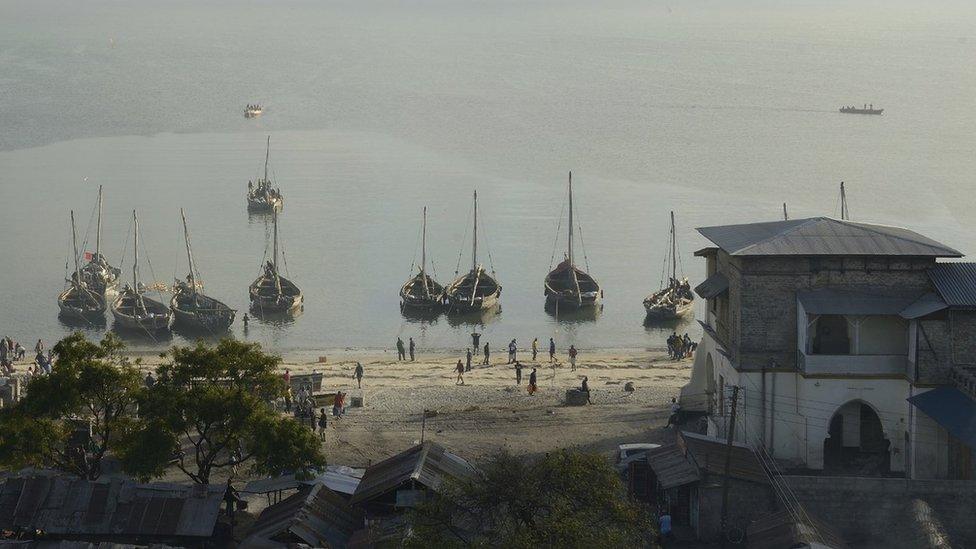Tanzania election: Could CCM lose to Ukawa?
- Published
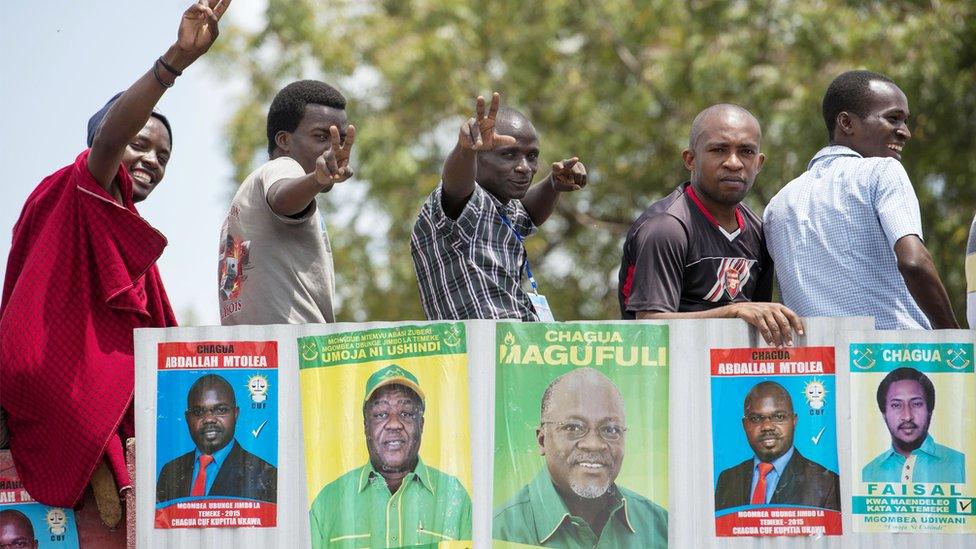
Africa's longest-reigning party, CCM (Chama Cha Mapinduzi), faces its most serious electoral challenge in decades when Tanzanians go to the polls on Sunday 25 October.
They will choose a new president and members of parliament on mainland Tanzania and the semi-autonomous Zanzibar archipelago. They will also vote for local officials.

Why is it important?
For the first time since the country's independence in 1961, CCM is up against a formidable threat from a coalition of four main opposition parties dubbed Ukawa (Umoja wa Katiba ya Wananchi, which means Coalition for the People's Constitution).
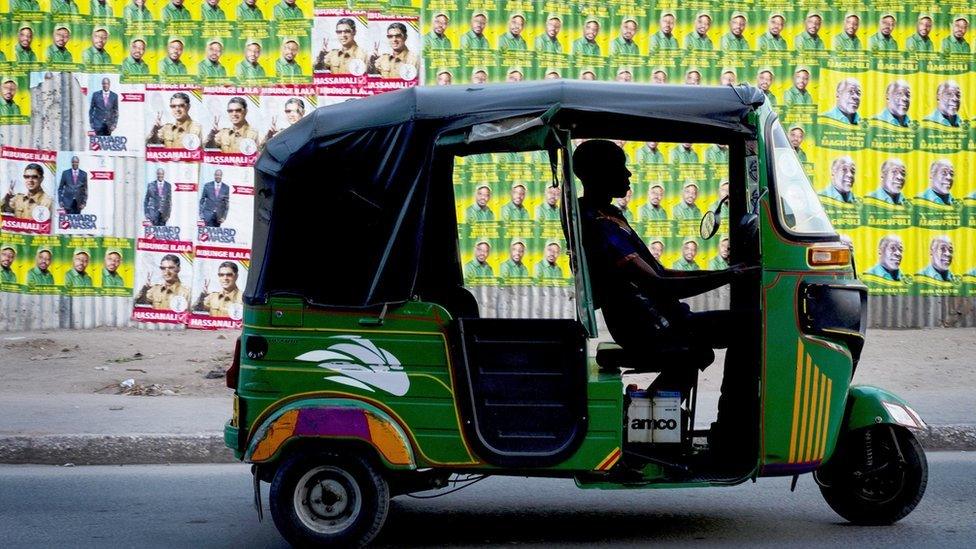
Ruling party supporters say they have guaranteed stability in the vast East African nation since independence
CCM holds two-thirds of the seats in parliament. It has strategically kept its identity closely linked to revered founding father Julius Nyerere.
Multi-party elections in Tanzania have always taken place as scheduled. There have been accusations of fraud in past polls but presidents have stepped down at the end of their tenure and ethnic tensions over elections are virtually unheard of in the country of more than 100 ethnic groups.
The incumbent, Jakaya Kikwete, has served the maximum two terms and is not seeking re-election.
During his term and over the past decade, a series of high-level corruption scandals have tainted the government and seen a reduction in financial assistance to the country, one of Africa's largest aid recipients.
The media have reflected the public's outrage and senior government figures have been forced to resign.

Who are the main presidential candidates?
The nomination of ruling party candidate Public Works Minister John Magufuli in July came as a surprise, as his rival Edward Lowassa had been seen as the favourite.
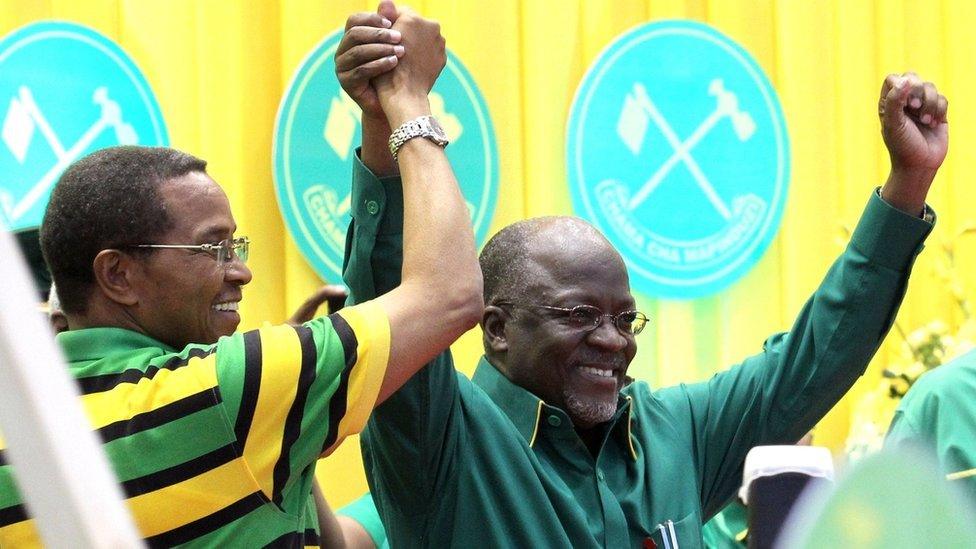
President Jakaya Kikwete (L) hopes he will be hand over the presidency to the CCM's candidate John Magufuli
But in response, Mr Lowassa defected to the Chadema (Chama Cha Demokrasia na Maendeleo) party and then mounted a formidable challenge against the CCM as leader of the Ukawa coalition.
Mr Magufuli is widely considered to be tough on corruption, and is keen to tap into the general public feeling that Tanzania has lost its way after a decade of high-level corruption scandals involving the government.
He has also promised to set up a special anti-corruption court if he is elected.

Is Mr Lowassa a serious threat?
Mr Lowassa's campaign rallies have drawn large crowds and are full of young people, many of whom are concerned about high youth unemployment.
The National Electoral Commission says that 57% of the 22,750,789 registered voters are between 18 and 35 years old.
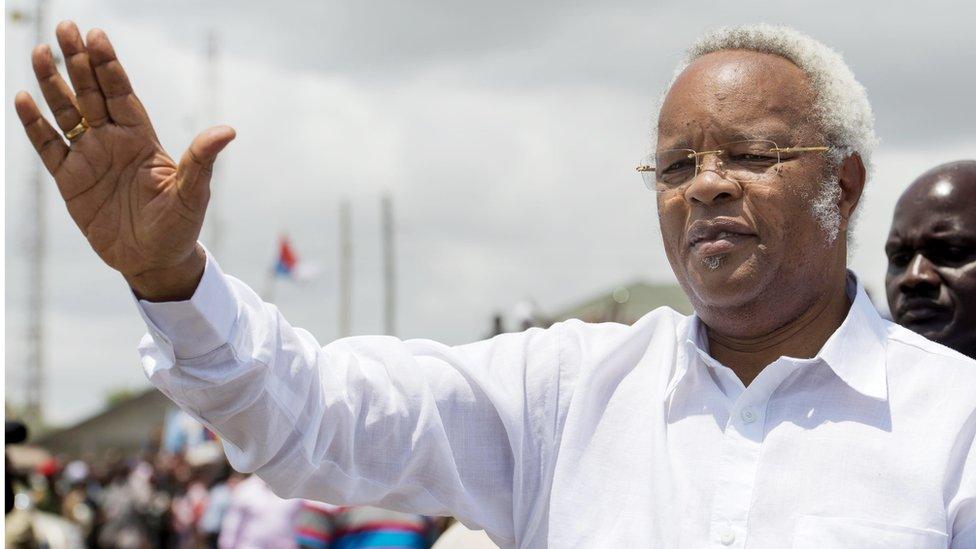
Edward Lowassa defected to the opposition after not being nominated by the ruling party
But some opposition members fear Mr Lowassa's past could cost them crucial votes.
He resigned as premier in 2008 after a parliamentary commission implicated him in a corruption deal with a US-based electricity company during a power crisis in 2006.
He was never charged and has denied any wrongdoing but one high-profile politician, Willibrod Slaa, pulled out of Chadema over its decision to back the former CCM member.

Who is likely to win?
Opinion polls suggest that CCM is set to win the presidency. However, the party is likely to lose a significant number of parliamentary seats to the opposition coalition.
There are six other presidential candidates including one woman, Anna Mghwira of the Alliance for Change and Transparency (ACT-Wazalendo).
The main parties' manifestos concentrate on eradicating poverty and reducing youth unemployment. They want to continue developing natural gas projects.

What about Zanzibar?
Tanzania's record of peace and stability has endured occasional political and sectarian unrest especially on Zanzibar, which is semi-autonomous and has its own president.
Sammy Awami reports on the debate over Zanzibar's autonomy as Tanzania's general election approaches
The archipelago, which has a majority Muslim population, has also experienced some Islamist-inspired violence.
The frontrunners are incumbent Zanzibari President Ali Mohammed Shein, for the CCM, and Seif Sharif Hamad is the Ukawa candidate.
BBC Monitoring, external reports and analyses news from TV, radio, web and print media around the world. You can follow BBC Monitoring on Twitter, external and Facebook, external.
- Published23 October 2015
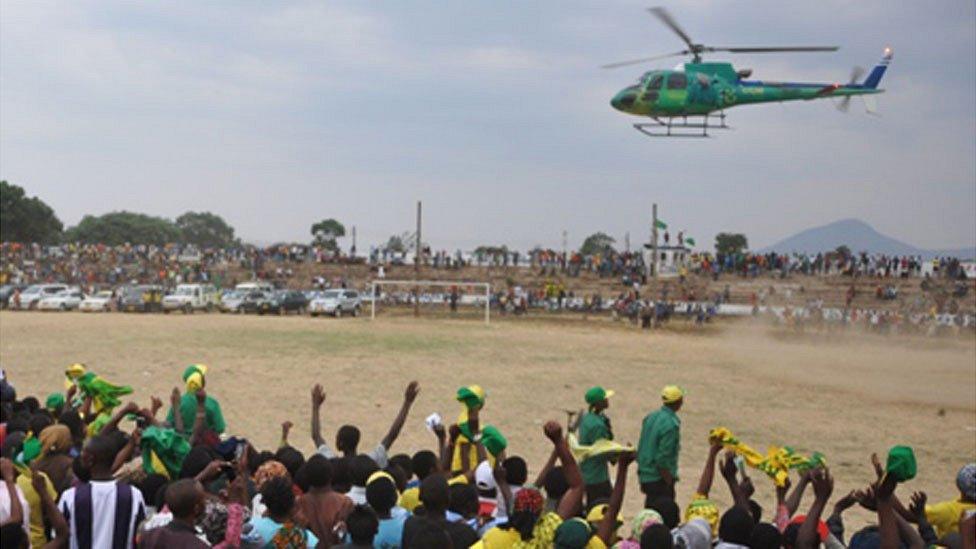
- Published9 October 2015
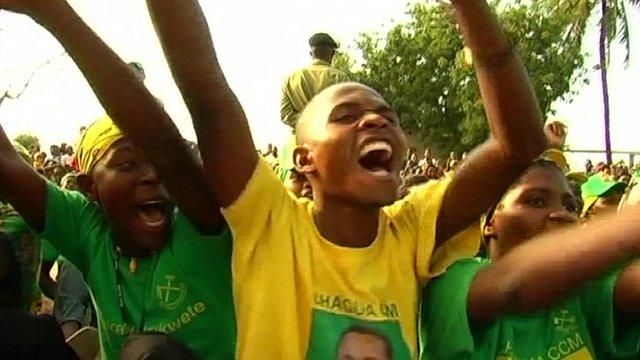
- Published16 October 2015

- Published25 September 2015
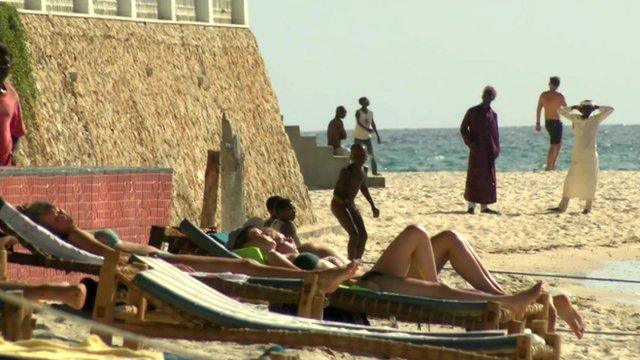
- Published16 October 2015
